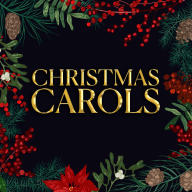Choral singing at Clare College, Cambridge, dates to 1866 when a choir was formed of undergraduates singing the lower lines of music, joined by boys recruited from local schools for the treble line. The arrangement with the boy singers came to an end in 1966, and for several years, the choir struggled without singers for the top line. The current Clare College Choir, with mixed-voice undergraduate singers, was founded in 1971 by music fellow Peter Dennison. He was succeeded by John Rutter in 1975. Rutter departed in 1979 to devote more time to composition, but the choir has continued to perform his music frequently. Rutter was replaced by Timothy Brown, who remained music director until 2010; the present music director is Graham Ross. The Choir of Clare College, Cambridge, consists of 25 to 30 members, mostly College undergraduates, but also includes community volunteers. Many are choral scholars, singers who are given voice scholarships and are required to perform in the choir for regular Evensong and Compline services as well as special holiday concerts. Two organ scholars take part in directing the choir as well. In addition to Rutter, the Clare College Choir has spawned a variety of other influential musical figures, including conductors Roger Norrington and Ivor Bolton, and harpsichordist Richard Egarr. The choir tours annually or more than once per year, mostly in Europe and the U.S., but also in East Asia.
The Clare College Choir, Cambridge, has a large discography. The group has attracted external labels, some of them major, rather than issuing music on an in-house imprint. Since a 2006 recording of Handel's Messiah, HWV 56, the choir has often recorded for Harmonia Mundi. The choir's repertory is large, mostly focused on contemporary British choral music but also extending to many other repertories. In 2020, the group released an album of music by Arvo Pärt, Peteris Vasks, and James Macmillan with the Dmitri Ensemble on Harmonia Mundi. ~ James Manheim, Rovi












